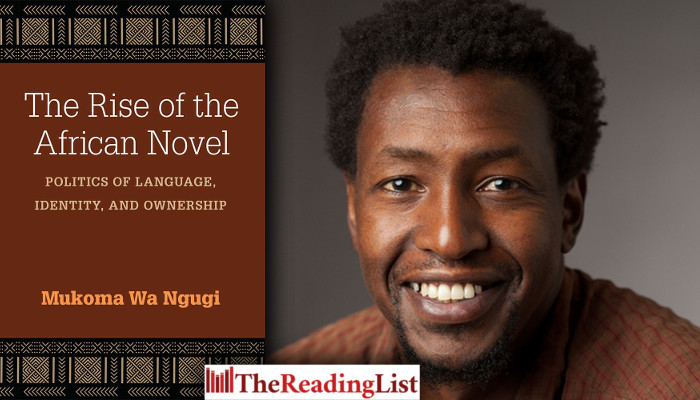Mũkoma wa Ngũgĩ considers key questions around the misreading of African literature in The Rise of the African Novel

‘What does it mean for the current generation of writers and scholars of African literature not to have an imaginative consciousness of their literary past?’
The Rise of the African Novel: Politics of Language, Identity, and Ownership, a new book by Mũkoma wa Ngũgĩ, will be out in March 2018 from University of Michigan Press’s African Perspectives series.
Mũkoma wa Ngũgĩ is Assistant Professor of English at Cornell University and the author of three novels, Mrs Shaw, Black Star Nairobi, Nairobi Heat, and two books of poetry, Hurling Words at Consciousness and Logotherapy. (And, of course, he is the son of Ngũgĩ wa Thiong’o.)
We can’t wait!
From the publisher:
Engaging questions of language, identity, and reception to restore South African and diaspora writing to the African literary tradition
The Rise of the African Novel is the first book to situate South African and African-language literature of the late 1880s through the early 1940s in relation to the literature of decolonization that spanned the 1950s through the 1980s, and the contemporary generation of established and emerging continental and diaspora African writers of international renown.
Calling it a major crisis in African literary criticism, Mukoma wa Ngugi considers key questions around the misreading of African literature: Why did Chinua Achebe’s generation privilege African literature in English despite the early South African example? What are the costs of locating the start of Africa’s literary tradition in the wrong literary and historical period? What does it mean for the current generation of writers and scholars of African literature not to have an imaginative consciousness of their literary past?
While acknowledging the importance of Achebe’s generation in the African literary tradition, Mukoma Wa Ngugi challenges that narrowing of the identities and languages of the African novel and writer. In restoring the missing foundational literary period to the African literary tradition, he shows how early South African literature, in both aesthetics and politics, is in conversation with the literature of the African independence era and contemporary rooted transnational literatures.
This book will become a foundational text in African literary studies, as it raises questions about the very nature of African literature and criticism. It will be essential reading for scholars of African literary studies as well as general readers seeking a greater understanding of African literary history, and the ways in which critical consensus can be manufactured and rewarded at the expense of a larger and historical literary tradition.
Source: Michigan Press
Author image: mukomawangugi.com
Categories Africa International Non-fiction
Tags African Literature Mũkoma wa Ngũgĩ Ngũgĩ wa Thiong’o The Rise of the African Novel
